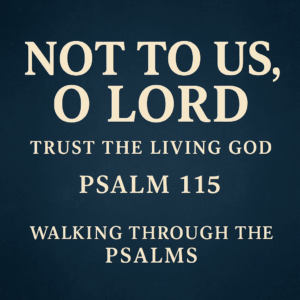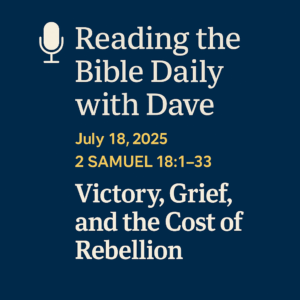⏱️ Estimated Reading Time: 14 min read
Somewhere between our role models for manhood—like basketball stars who cross dress, baseball players addicted to drugs, and college football players who beat up females in dorm rooms—and our contorted view of manhood as seen on TV shows—where Dad is pictured as a harmless idiot who must be guided by either his wiser children or more sophisticated feminist wife—we’ve become more than a little confused.
Now, how does that bother me? It bothers me as a father of a son because I don’t want my boy to think that those role models in this present evil age represent what a man really is. Further, as a minister and a historian, I know that when people face tough times, there must arise strong men to point them to the way out. In a word, the continuation of a civilized society always hangs—humanly speaking—on strong men who will stand in the gap. The honor of our women, the nurture of our children, and the desperate need to seriously address the problems that face us all call for a right view of manhood.
So where do we go to find these men? We start by laying down the truth about what true manhood is, and we begin teaching it and living it and modeling it for our sons and daughters. And you knew I was going to say this—we turn to see what God has to say.
For the Lord, indeed, has shown us in His Word what true manhood is all about.
There are four passages that I want to go to today—certainly not an exhaustive study of the subject—but these four passages contain four clear calls to certain aspects of true Biblical manhood which are essential for us to get right.
1 Corinthians 16.3—What Does ‘Quit Ye’ Mean?
Now, in the first place, I want to ask you to turn to 1 Cor. 16.13. At the very end of the Apostle Paul’s first epistle to the Corinthians, Paul, like a great general, gives a series of quick little charges to seal his more detailed concerns in the letter. Verse 16 is given to the leaders of the church, and I want to read the King James Version of that verse again:
“Watch ye, stand fast in the faith, quit you like men.”
Now that sounds archaic to us. What does it mean to “quit ye like men?”
I read, then, the NIV:
“Be on your guard; stand firm in the faith; be men of courage; be strong.”
Paul is calling the leaders of the church to do something in the face of the problems of their day. He uses the Greek word, andrizesthe, which is the only occurrence of that word in the Bible. It literally means, “Be a man.” I had a friend who in situations like that would say, “Son, stand up on your hind legs and act like a man!” That is the meaning. So, the King James in saying “Quit ye like men” that is “Take a stand like a man, like the strong model of a man which God intended” is the idea here.
Now the context is the church—the context is the community of faith. These leaders had to act like men and stand in the gap. Manhood is not measured by titles or appearances; true Biblical manhood is measured by a man laying hold of the God-given prerogatives of male headship and applying the wisdom of God’s Word at the exact time when it is most needed.
So, this is a call to be a man of faith in the community. God is saying to us that Biblical manhood requires us to “Quit ye like men in the church and in the community.”
In Proverbs 31, a chapter most noted for its treatment of the virtuous women and most preached on days like Mother’s Day; there is mention of something that interests us at this point in verse 23. That verse says: “Her husband is respected at the city gate, where he takes his seat among the elders of the land.”
This is showing not only that a godly woman will influence a godly man, but in doing so shows us the model of a man: it’s a man taking his stand in the community.
Our nation, our city, our church always needs men who will sit in the gates, take leadership, pick up the slack, get involved and “be a man” in the community.
Too often, men have backed off in the church and said, “I’m too busy with other things, let the women do it.” And many a man has said this and women, thankfully, have stood in the gaps, like Deborah’s of old, to do what no man would do. But, according to the Bible, this is a sign of judgment on a society. Biblical manhood requires us to be there, to take the lead, to stand in the gap. A real man is a man who is working in his church, advancing the gospel of Christ in every relationship he has, standing up for the Lord at his work and bringing the Gospel to bear in all his pursuits.
Quit ye like a man; God is saying in this passage, and stand up for the faith. Be courageous, be strong, don’t waver on your faith in Christ.
Now there is a second aspect of Biblical manhood and a second call to it. I lead you to the first Epistle of St. Peter.
1 Peter 3.7—Quit Ye Like Men with Women
There the Apostle Peter, having called women to their right roles, calls men to theirs.
“Husbands in the same way be considerate as you live with your wives, and treat them with respect as the weaker partner and as heirs with you of the gracious gift of life, so that nothing will hinder your prayers.”
What is this saying? Peter is giving God’s call to Biblical manhood in marriage, and the Lord is surely saying to us, “Quit ye like men with your wives!”
To be a man, according to this passage, is to value marriage. We should encourage it as an ideal for our boys and young men. We should model it to them with strong, healthy marriages in which men submit to the roles God has given them. This role has demands and a rationale and a caution. The whole of this Scripture is well grounded when we consider the companion passage in Ephesians 5.25: “Husbands love your wives just a Christ loved the Church and gave Himself up for her…” We are to die to self and live for our wives. This requires the study of our wives. Peter says, Be Considerate. Consider her needs, consider her value and worth to you before making any decision. It means to be intentional and thoughtful as we relate to them. Moreover, we are taught to give respect to her. There are some men who like to read the admonition to wives to be submissive to their husbands, but who miss this. God is calling you, man, to respect your wife. How? As the weaker vessel. What does that mean? Peter is admitting the obvious in nature: that the female is, in general, not as physically strong as a male. Thus, you are to harness your maleness—your physical strength—to nurture her, respect her and protect her, never to intimidate her. That is a sin. It may even be persuasively argued that to habitually use one’s maleness to terrorize one’s wife is a violation of the covenant of marriage. To do otherwise, according to this passage, is to get disconnected from God. Your very prayers are hindered if you are not living out God’s call for Biblical manhood in the marriage.
A real man, then—to coin that often-used expression—is one who honors marriage, and treats his wife with dignity, honor, and esteem. Wimps use brutal strength to batter their will into others. Men of honor love and cherish and nurture others and lead through servant-leadership.
It may be time for you to ask your wife to forgive you. Maybe even better, it is time to live the renewed life of a man of God; time to recommit to God’s standard for husbands. “Quit ye like men” in your marriage.
Ephesians 6.4—Quit Ye Like Men as Dads
The third aspect of Biblical manhood and the third call from God’s Word this morning comes from Ephesians 6.4. The force of the passage is this:
“Quit ye like men” in your roles as dads. The passage reads: “Fathers, do not exasperate your children; instead, bring them up in the training and instruction of the Lord.” There is a negative and a positive to this verse. The negative is to caution men against the tendency to provoke or exasperate or frustrate our children. Men, how do we do that?
One, by requiring our children to do something that we don’t do ourselves. The man who tells his children to read the Bible and yet never does, so himself is provoking his children. You see, in God’s universe, children find it very difficult and usually impossible to grow beyond the model of their parents. Words alone without the benefit of example will not do. Many a child has been accused of being a rebel from the church when he or she was rebelling against a father—and sometimes a mother—who demanded of them what they might have been committed to publicly, but not privately.
Two, we can provoke or exasperate our little ones by expecting them to do more than they can. It is good to push. Growth always comes through resistance. But, don’t be foolish in pushing children. Too many dads have been guilty of expecting little children to be adults or expecting teenagers to move through adolescence in a few months, rather than the several years of transition which God provided.
I was trained by the U.S. Navy Security Services to spy on the Albanians during the Cold War. Over a decade after I graduated from the Defense Language Institute in Albanian, I found myself preaching through that former Communist nation. While in Albania, one of the funniest things I saw was a smoking pipe on wheels. It looked like a pipe at the mouth, but its stem was four or five feet long, and the bowl of the pipe had wheels. Only one person smoked that pipe: the old grandfather. And all the children would gather around to play with the old man. The Albanians used this to bridge the gap between the old man and the little children.
God’s Word, “do not provoke your children” is something like this. It is an admonishment to bridge the gap between the fast-paced, ambitious, and strong man who makes things happen and the vulnerable little child. Be careful, men, lest in your ambition to provide for your family you stop cultivating a strong relationship with them.
Now the positive is this: Train your children. I think this is speaking of the father’s God-ordained role to lead his family in home worship, or family worship.
I love the poetry of the great Scottish poet, Robert Burns. I have a favorite. The poem, The Cotter’s Saturday Night, described the scene in the home of “cotters”—those humble folks living in their cottage—on the eve of the Lord’s Day. Burns painted a word picture of a father after what Burns called “a cheerful supper” calling his family to worship. The father opened the Bible and read the Word of God to his family and then prayed.
Burns put it like this: “The priest-like father reads the sacred page…” Burns, then, shows in many verses how the father carefully exposes his children over the years on Saturday night to the stories, the characters, and the acts of Almighty God. Burns said there was nothing that could compare to the power of that scene in forming a godly man or woman and I would add forming a godly nation.
The great Bobby Burns had it exactly right when he concluded:
“Compared with this, how poor religion’s pride, in all the pomp of method and of art, when men displayed to congregations wide, Devotions every grace, except the heart.”
Ah, but it is the heart that is revealed in family worship, and it is the duty of every head of household—be ye, father or single mother—to gather your household to the Family Altar and break the bread of life to them.
If the landscape of our nation, on Saturday nights, were to look like the Cotter family in Burn’s poem, we would have revival in this land, and many of the problems of our society would melt before the heat of such devotion to Jesus Christ.
Father, that begins today with you. “Quit ye like men” and resolve today to lead your family to the throne of grace in Bible reading and prayer.
Finally, we cannot understand true Biblical manhood unless we consider the very model of man.
1 Tim. 2.5—Quit Ye Like Men Before the Lord
I draw your attention 1, Tim. 2.5. Here Paul commends his readers to consider the One he calls, “…the Man Christ Jesus” as the only Mediator between God and man. Here, our Lord who was and is God is at the same time altogether man. And his humanity is shown as necessary for the redemption of sinful man.
In this, I would have you to consider how the Man Christ Jesus stood up before the apostate Jewish community of that day and declared the truth of the Word of God despite persecution. When we look at Christ, we are looking at a man like no other.
The Man Christ Jesus, though he did not marry, showed tenderness and gentility as he dealt with the woman caught in adultery, or as he studied the heart of a broken Samaritan woman at the well.
This is the Man Christ Jesus, though he hung on a cruel cross, bravely ministered to his earthly family as he looked out for his mother’s temporal welfare and declared, “Woman, behold thy son, Man behold thy mother.”
This Man Christ Jesus also took infants into his arms and blessed them; this man was loved by little children and took them into his arms when others shunned them.
What man is like unto the Man Christ Jesus? What man would give his life for those who cursed him? What man, though he created the world and all that is in it, would yield Himself up to death by the evil hands of his own creation to redeem them from sin and hell? Show me such a man? There is no such man except the Man Christ Jesus.
“Quit ye like men” and yield your life to the Man Christ Jesus.
The bravest man, the noblest man, is the man who recognizes his weakness due to sin and casts himself on the mercy and grace of God in Christ and turns to Him and says,
“Oh, Lord save me, even me, a sinner. I trust in Thee and long now to turn from my sin and follow Thee all my life. I will, by your example and your grace, O Lord, take my stand in this world for Thee and for hearth and home. I will speak your Name before others. I will rear my family of the Word of God.”
Some of you today need to repent. Some need to confess Christ for the first time. Some of you need to take a stand and become accountable by becoming a member of this church. Some of you need to submit anew to God’s standards and let go of the culture’s expectations.
“Quit ye like men,”—all of you, men and women—and be the People of God amid this old world and it just may be that your light will so shine that others will be moved to glorify God.
We have never needed that light more than we need it now. We have never needed fathers who will, indeed, “Quit Ye Like Men” as we need them—as we need you—today.
In the Name of the Father, and of the Son, and the Holy Spirit. Amen.



